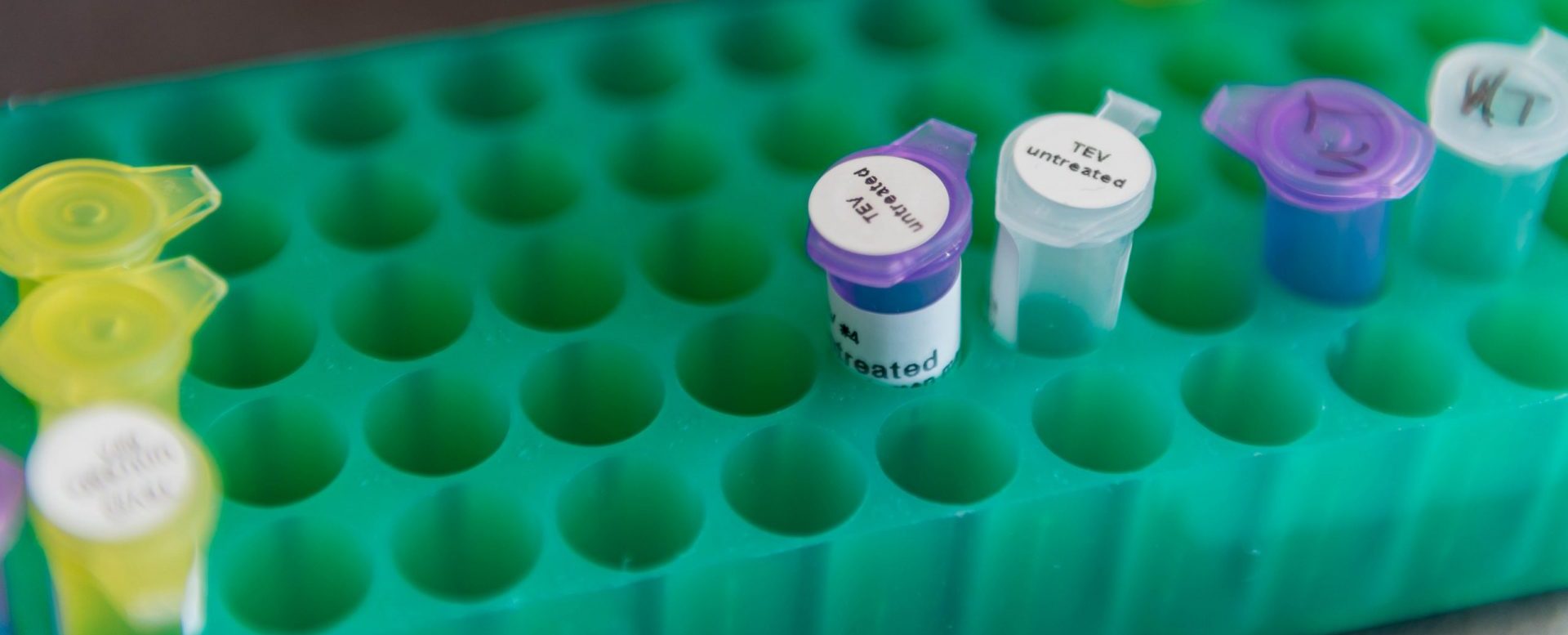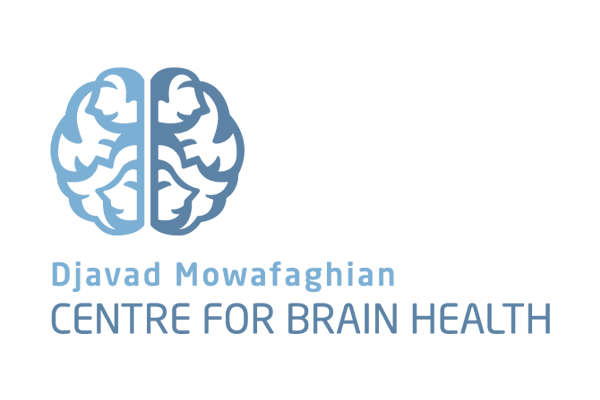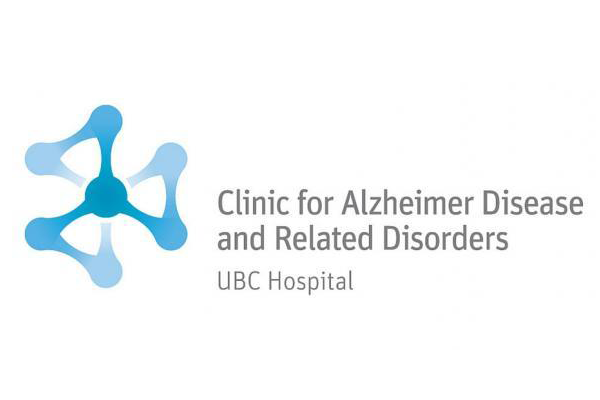The research activities of our integrated interdisciplinary team are focused and driven by the needs of patients and families attending UBCH CARD.
The Alzheimer disease research programs at the Djavad Mowafaghian Centre for Brain Health are led by a team of distinguished investigators with expertise spanning the continuum from discovery research to translational and clinical research. These individuals—many of whom have achieved the highest honours of their profession—are internationally renowned for their field-changing contributions, including discoveries on the genetics and inheritance of the dementias, elucidation of the causes and potential novel treatment targets for Alzheimer disease, and contributing to the reshaping of the field toward earlier intervention and disease prevention.
The program is deeply committed to ensuring that research progress is translated seamlessly to clinical care through its engagement in the development of clinical practice guidelines, public policy, and through leadership on national/global research initiatives.
The clinic strives to be at the vanguard of Alzheimer disease care, engaging in research to investigate the disease from all angles, including the root causes and underlying mechanisms for effective prevention, early detection, advanced treatment, and interventions to improve quality of life.
RESEARCH STUDIES AT UBCH CARD
Currently ENROLLING (2025)
CELIA study
This Phase 2 study, sponsored by Biogen MA Inc., is assessing the safety and efficacy of a drug called BIIB080 in participants with Mild Cognitive Impairment and Alzheimer Disease. The study is placebo controlled and the drug/placebo is administered every 3 months, along with regular safety, cognitive, and functional assessment every 6 weeks. The duration of the study is 18 months with a planned long-term no-placebo extension.
ONGOING, BUT NO LONGER ENROLLING
ADNI4
This study is a continuation of the ADNI3 study. The purpose of this study is to collect brain scans, blood samples, memory test scores, and cerebrospinal fluid from people with AD, MCI, or no memory impairment. These data may help characterize the early stages of AD, and shape the criteria for earlier diagnosis and treatment of AD. They may also influence future clinical trials that focus on identifying and treating early AD.
COMPASS-ND STUDY
This observational study, conducted by the Canadian Consortium on Neurodegeneration and Aging (CCNA), will evaluate the usefulness of imaging studies, clinical assessments, and biomarker tests, together with measurements of memory, thinking, and daily functioning, for assessing different sorts of cognitive and movement changes seen in older adults.
ENROLLING in 2025
CELIA study
This Phase 2 study, sponsored by Biogen MA Inc., is assessing the safety and efficacy of a drug called BIIB080 in participants with Mild Cognitive Impairment and Alzheimer Disease. The study is placebo controlled and the drug/placebo is administered every 3 months, along with regular safety, cognitive, and functional assessment every 6 weeks. The duration of the study is 18 months with a planned long-term no-placebo extension.
DIAN-TU STUDY
The purpose of this research study is to test the study drug, referred to as remternetug, to determine its effectiveness for the study treatment of asymptomatic (at-risk) Alzheimer's disease in individuals with AD-causing mutations. This study is for cognitively intact people who are carrying a mutation in an APP, PSEN1, or PSEN2 gene that is associated with Dominantly Inherited AD OR do not know their mutation status AND there is a mutation in their family pedigree that puts them at a direct risk of inheriting the known mutation. The study drug or placebo is administered every three months for at least 2 to 5 years. Enrollment will begin in the Summer of 2025.
ACAD STUDY
The primary objective is to collect saliva/ blood sample, memory test scores, data on demographics, lifestyle, early life experiences, and medical history from people of Chinese descent. With the collected data, the ACAD study team aims to investigate the impact of genetic and non-genetic risk factors for AD, evaluate the differential effects of sex and APOE genotypes on AD risk, and predict diagnosis of AD using dementia risk scores derived from genetic and non-genetic risk factors.
ONGOING, BUT NO LONGER ENROLLING
ADNI4
This study is a continuation of the ADNI3 study. The purpose of this study is to collect brain scans, blood samples, memory test scores, and cerebrospinal fluid from people with AD, MCI, or no memory impairment. These data may help characterize the early stages of AD, and shape the criteria for earlier diagnosis and treatment of AD. They may also influence future clinical trials that focus on identifying and treating early AD.
COMPASS-ND STUDY
This observational study, conducted by the Canadian Consortium on Neurodegeneration and Aging (CCNA), will evaluate the usefulness of imaging studies, clinical assessments, and biomarker tests, together with measurements of memory, thinking, and daily functioning, for assessing different sorts of cognitive and movement changes seen in older adults.
CURRENTLY ENROLLING (2025)
Nabilone-FTD study
This Phase 2 study, coordinated across Canada by the Douglas Hospital Research Centre, QC, is assessing the efficacy of a synthetic cannabinoid called Nabilone, in reducing agitation in patients with Frontotemporal Dementia. The study is placebo controlled with all participants being on drug/placebo for 6 weeks and then crossing over to the alternate drug/placebo for 6 weeks. The drug/placebo is taken daily.
ONGOING, BUT NO LONGER ENROLLING
ALLFTD STUDY
ALLFTD is a multisite research project aimed at understanding the changes in brain function that occur as a result of frontotemporal lobar degeneration (FTLD) syndromes. FTLD syndromes can include bvFTD, bvFTD with ALS, PPA, PSP, or CBD. Some forms of FTLD are genetic, while others are not. ALLFTD is interested in all forms of FTLD. This study is interested in learning about the changes in the body fluids and brain that we think change in response to disease progression.
COMPASS-ND STUDY
This observational study, conducted by the Canadian Consortium on Neurodegeneration and Aging (CCNA), will evaluate the usefulness of imaging studies, clinical assessments, and biomarker tests, together with measurements of memory, thinking, and daily functioning, for assessing different sorts of cognitive and movement changes seen in older adults.
FTD STUDY
The purpose of this study is to identify the biochemical and genetic basis of frontotemporal dementia (FTD), and to better understand the clinical and cognitive features of the disease. These data may improve our diagnostic techniques and lead to new treatments for FTD. To date our research group has identified two novel gene mutations that cause FTD (Progranulin and C9ORF72).
CURRENTLY ENROLLING (2025)
No studies currently available.
ONGOING, BUT NO LONGER ENROLLING
COMPASS-ND STUDY
This observational study, conducted by the Canadian Consortium on Neurodegeneration and Aging (CCNA), will evaluate the usefulness of imaging studies, clinical assessments, and biomarker tests, together with measurements of memory, thinking, and daily functioning, for assessing different sorts of cognitive and movement changes seen in older adults.
CURRENTLY ENROLLING (2025)
No studies currently available.
ONGOING, BUT NO LONGER ENROLLING
COMPASS-ND STUDY
This observational study, conducted by the Canadian Consortium on Neurodegeneration and Aging (CCNA), will evaluate the usefulness of imaging studies, clinical assessments, and biomarker tests, together with measurements of memory, thinking, and daily functioning, for assessing different sorts of cognitive and movement changes seen in older adults.
CURRENTLY ENROLLING (2025)
ACAD STUDY
The primary objective is to collect saliva/ blood sample, memory test scores, data on demographics, lifestyle, early life experiences, and medical history from people of Chinese descent. With the collected data, the ACAD study team aims to investigate the impact of genetic and non-genetic risk factors for AD, evaluate the differential effects of sex and APOE genotypes on AD risk, and predict diagnosis of AD using dementia risk scores derived from genetic and non-genetic risk factors.
ONGOING, BUT NO LONGER ENROLLING
ADNI4
This study is a continuation of the ADNI3 study. The purpose of this study is to collect brain scans, blood samples, memory test scores, and cerebrospinal fluid from people with AD, MCI, or no memory impairment. These data may help characterize the early stages of AD, and shape the criteria for earlier diagnosis and treatment of AD. They may also influence future clinical trials that focus on identifying and treating early AD.
CURRENTLY ENROLLING (2025)
THE CARD STUDY
The goal of this study is to gather as much information as possible on all patients referred for a clinical assessment. Blood samples collected for DNA extraction, serum and plasma banking may identify biomarkers and risk-factor genes associated with a particular type of dementia. These discoveries may lead to an improved diagnosis and treatment of dementia.
REGISTRY STUDY
The purpose of this study is to create a registry of people who are interested in participating in currently enrolling or future studies. This study also aims to determine whether you may be a possible candidate for one of the research studies currently enrolling at the University of British Columbia Hospital (UBCH) Clinic for Alzheimer and Related Disorders and Vancouver General Hospital (VGH) Stroke Clinic.



